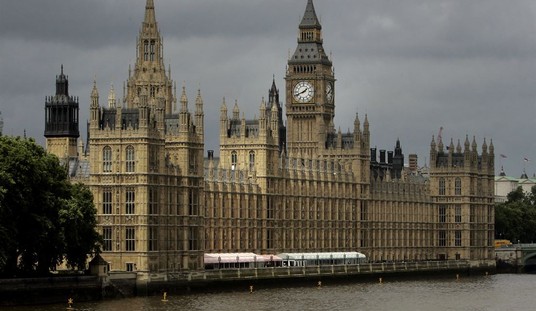At the University of Colorado Denver, they’re trying to accomplish equity. Also receiving aim: justice and inclusion.
Therefore, the school’s issued a manual for students and teachers.
The five-page Syllabus Review Guide for Equity, Justice, and Inclusion encourages classes to incorporate the virtuous trio.
From the document, courtesy of the College of Liberal Arts and Sciences Council on Diversity, Equity, and Inclusion:
The purpose of this Syllabus Review Guide is to help educators address inequities, injustices, and exclusions of a historical and systemic basis whose legacies affect students today.
What do equity, justice, and inclusion actually mean? Whatever it is, the school wants students and staff to become “deliberate” activists:
Although [the words] do not have universally-shared meanings, they typically refer to a recognition of institutionalized disadvantages and barriers that can be remedied only through deliberate action.
For professors:
This guide offers starting points for developing syllabi that optimize success for all students. … [I]t is meant to encourage continual reflection and to spur lifelong efforts to foster equity, justice, and inclusion in the classroom, on campus, and in the community.
Whatever subject is being taught, instructors are to take away focus in favor of social engineering. That’s an unavoidable trade, given that time and energy are finite.
CU Denver hails six practices “designed to help all students, but especially minoritized students, be more successful in their learning”:
- DEMYSTIFYING college policies and practices
- WELCOMING students and creating a classroom culture in which they feel safe and their cultures respected
- VALIDATING students’ ability to be successful
- CREATING A PARTNERSHIP in which faculty and students work together to ensure success
- REPRESENTING a range of racial, ethnic, gender, socio-economic, sexual, ability, and national and other experiences and backgrounds in assignments, readings, and other materials
- DECONSTRUCTING dominant norms and systemic inequities
It’s a curious change. Schooling’s original design went something like this: It’s teachers’ job to tell students what to learn; it’s students’ job to learn it.
Now, it appears, a majority of responsibility lies with the instructors. And rather than passing along subject-specific information, they’re tasked with indoctrinating young people into a world view.
In order to do that properly, teachers must adjust their own perspective to that of the state’s.
Case in point, from the guide:
Include or refer to CU Denver’s land acknowledgment or an abbreviated portion.
In part:
We honor and acknowledge that we are on the traditional territories and ancestral homelands of the Cheyenne, Arapaho, and Ute nations. This area…was the epicenter for trade, information sharing, planning for the future, community, family and ally building, as well as conducting healing ceremonies for over 45 Indigenous Nations, including the Lakota, Kiowa, Comanche, Apache, Shoshone, Paiute, Zuni, Hopi among others. … Let us acknowledge the painful history of genocide and forced removal from this territory and pay our respect to the diverse Indigenous peoples still connected to this land. Let us also give thanks to all Tribal Nations and the ancestors of this place.
“Acknowledging that we reside in the homelands of Indigenous Peoples,” the example asserts, “is an important step in recognizing the history and the original stewards of these lands. … The United States has worked hard to erase the narratives of Indigenous Peoples over time.”
As has been pointed out before, historians — academics, ironically — say those tribes are not indigenous. Rather, they came to the North American continent by the way of the Bering Strait.
Regardless, while the school leads a confession to stolen land, clearly, it isn’t interested in giving the acreage back.
Of great interest, however: identity politics.
Include readings, activities, and assignments that ask students to critically examine their assumptions about different minoritized groups, and the privileges or disadvantages they accrue by virtue of their identity.
Once upon a time, education was about learning facts and skills. Now, it appears, it’s more about falling into line. And accepting a country full of thieves and those who are being robbed.
As for students not feeling “safe” in a classroom, in the 1940s, men younger than they stormed Omaha Beach.
Our idea of “safe” has evolved, as has our idea of education.
Are we on the cusp of a return to the ways of yore?
Not likely — the old school is a “dominant norm,” now deconstructed.
-ALEX
See more content from me:
Gold Mettle: Olympian’s Penis Freezes, but He Won’t Give Up
Bill Maher Levels Left-Wing Lunacy Flocking the Faces of America’s Kids
Find all my RedState work here.
Thank you for reading! Please sound off in the Comments section below.














Join the conversation as a VIP Member